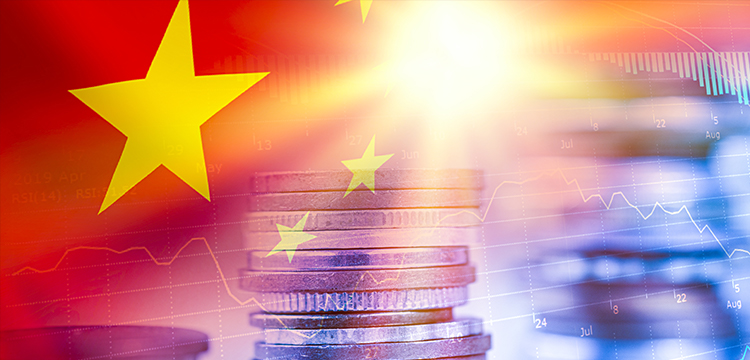China this week reported that its economy grew by 3.2% in the second quarter of the year. This followed on from a drop of 6.8% in the first quarter, the country's first economic contraction in more than 40 years. This means that it has avoided the ignominy of formally going into recession, a state of affairs that many other countries would look at enviously. The consensus amongst analysts is that this points towards a V-shaped recovery, again a situation that many others would love to emulate. In fact, the level of growth was higher than forecast. There are then reasons to be cheerful but below the surface not everything in the garden is yet rosy (though it is still rosier than it is for many others).
On the plus side, intervention by the government in particular has led to a strong performance in China's industrial production – which includes manufacturing, mining and energy - after an 8.4% fall in the first quarter. Steel production in China is at record levels partly because local governments are undertaking infrastructure projects in an attempt to stimulate their economies, a Keynesian-style economic approach which is being replicated in a number of other countries such as the UK. The approach is not new to China which adopted similar policies after the 2008 financial crisis. In fact, back then the infrastructure spending was even bigger than it is now. The service sector also showed encouraging signs of recovery in June. The Chinese government will welcome these positive trends.
The significant remaining area of concern is on the consumption side. China's lockdown was extremely strict and knocked back consumption figures significantly. Spending in areas such as travel, dining and leisure services has not recovered to its pre-Covid levels and is unlikely to do so in the near future as some pandemic control measures remain in force. Some local authorities have issued coupons to consumers in an attempt to encourage them to spend more and there are some signs that this has met with a degree of success but not yet at the levels desired. In contrast, savings have risen significantly as consumers choose to conserve their money rather than spend it. Analysts suggest that there is still a significant level of concern amongst consumers that there may be a resurgence of the virus and there is a perceived danger of flare-ups in cities until a vaccine is found and deployed.
China of course also has a significant part to play in terms of driving-up or at least supporting global activity economic activity. There was some good news here with new customs data that appeared this week which showed a rise in exports of 0.5% compared to the same month last year though unsurprisingly exports for the year as a whole remain down. A spokesman for China's customs administration referred to a 'grim and complicated external environment' and noted that the uncertainties facing China's foreign trade development are still increasing significantly. It is an astute observation and not just because of coronavirus either. During the week China has fallen out with the UK administration after previously-reported problems with other countries such as the USA and Australia. Tensions have risen between the UK and China over the new security laws that China has introduced regarding Hong Kong and also because of the UK government's decision to no longer proceed with its plans to procure Huawei 5G technology. There has been a verbally robust response from China as would be expected. It is not just the pandemic which is complicating the future of international trade.
Wayne Bartlett is an author for accountingcpd. To see his courses, click here.

You need to sign in or register before you can add a contribution.